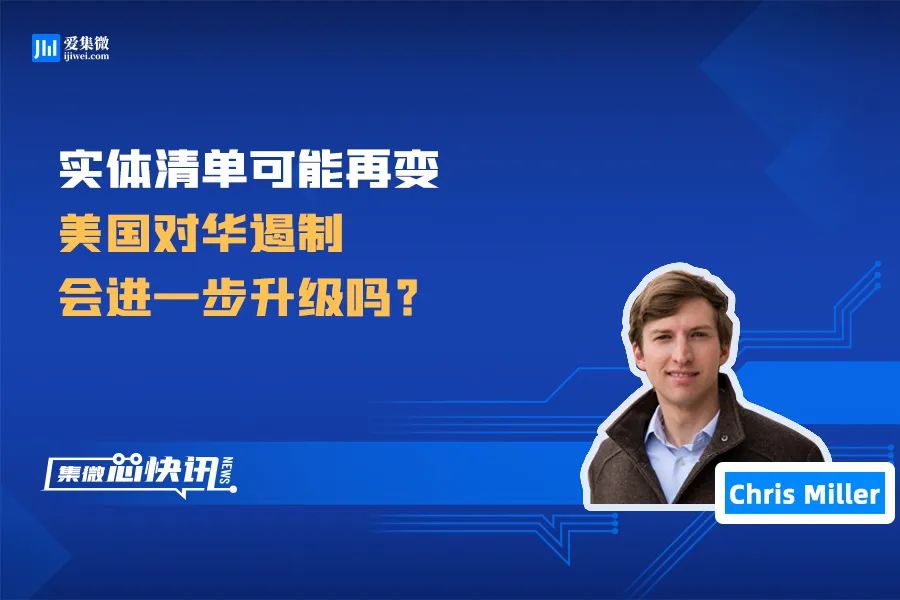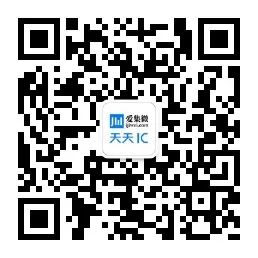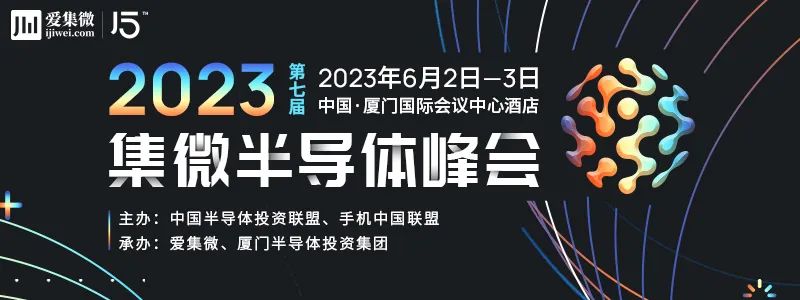集微网·爱集微APP,各大主流应用商店均可下载

【日前,集微网对《芯片战争》作者 Chris Miller进行过一次专访,在专访中,双方讨论了 BIS系列法规,以及这些法规对中国芯片设计和制造企业影响以及他对美国出口管制的看法。】
集微网:去年10月,美国商务部发布了一套规则,实施系统性和特定技术的出口管制,以限制中国的采购和制造能力。基于BIS公布的一系列法规背景,你是否认为中国的芯片设计公司比制造实体受到的影响要小一些?
Chris Miller:是的,10月份发布的出口管制措施将主要影响美国设备制造商、购买其设备的中国大陆工厂以及销售先进GPU芯片的美国公司。试图设计有竞争力的GPU芯片并在中国台湾制造的中国大陆公司,如果其能力达到一定水平,也将受到影响。
集微网:荷兰政府一直在向美国施压,要求获得 ASML 许可,将其最先进的机器运往中国。现在荷兰官员声称,他们应该符合国家的利益,应该恢复与中国的贸易。那么,您能否预测一下ASML未来在中国的业务前景?
Chris Miller:荷兰政府面临着对其自身利益与它在中国的利益相互矛盾的处境。公司自然希望将产品销往国外。然而,荷兰政府也意识到先进的芯片制造工具也可以生产具有军事用途的芯片。因此,荷兰政府必须平衡这两件事,即对华保持正常贸易,又要确保其设备不会用于有意义的军事用途。在一个所有军队都竞相将人工智能应用于军事系统的时代,荷兰必须平衡芯片能力、计算能力和军事系统之间存在的直接关系。
集微网:不少分析人士预测,美国商务部BIS可能会在本周更新实体清单,这意味着部分在UVL(Unverified List,未核实清单)中的中国半导体公司可能会被移至永久性“实体清单”。如果成真,是否意味着中美芯片战升级?
Chris Miller:目前仍不清楚未经核实的名单上的中国公司是否会遵守商务部的新要求。如果不是,这将表明中国企业不愿意接受商务部更深入的监督,并可能促使美国将相关企业加入实体名单。
集微网:中国在世界贸易组织上对美国的芯片出口管制措施发起贸易纠纷。中国指责BIS的规则是单边和霸权的,而WTO的方法是多边的。您认为世贸组织是否仍有一些影响力来处理这一案件?
Chris Miller:关于世贸组织,我觉得它对此事不会有多少影响力。美国会声称这些控制措施是国家安全问题,因此超出了世贸组织的管辖范围。在过去的十年中,我们已经看到了政府将贸易和投资限制描述为国家安全问题的趋势正在不断加强 ,并拒绝听从世贸组织对此事的任何裁决。
集微网:听说日本和荷兰已经原则上同意与美国一起加强对出口到中国的先进芯片制造设备的控制。在此之前,许多专家认为,一些不包括 "美国技术 "的半导体材料(如光刻胶)不受BIS规则的约束。如果日本和荷兰同意加入美国的管制,中国的光刻胶进口是否会受到严重影响?
Chris Miller:关于光刻胶,这不是我详细研究过的东西,所以我不能评论。对此我很抱歉。
Question 1:
In October,Department of Commerce of U.Sreleased a set of rules that impose systematic and technology-specific export controls to limit China’s ability to purchase and manufacture. Based on the context of series of B.I.S regulations, do you believe the Chinese Fabless (Design Houses) companies are less influenced than themanufacturing entities?
Yes, the export controls released in October will primarily impact U.S.machine tool makers, the Chinese fabs that buy their equipment, and U.S. firms that sell advanced GPU chips. Chinese companies that are trying to design competitive GPU chips and get them fabricated in Taiwan will also be impacted if their capabilities reach a certain level of sophistication.
Question 2:
the Dutch governmenthas being pressed byU.S.regarding ASML licensing to ship its most advanced machines to China. Now the Dutch officials claim that they should be in line with the interests of the country, trade with China should be restored. Thus, could you forecast ASML’s business outlook in China in the future?
The Dutch government faces competing definitions of its interests vis-a-vis China. Companies naturally want to sell their products abroad. However, the Dutch government also realizes that advanced chipmaking tools also can produce chips with military use cases. So the Dutch government has to balance the desire to keep trading while also ensuring its machines are not meaningfully contributing to military capabilities. In an age in which all militaries are racing to apply artificial intelligence to military systems, there's a direct relationship between chip capabilities, computing power, and military systems that the Dutch must balance.
Question 3
Many analysts predict that, B.I.S ,Department of Commerce of U.S could renew the entity list this week, which means some of the Chinese semiconductor companies which are in the list of UVL( Unverified List) could be moved to the permanent“Entity List”. If it comes true ,does it indicate the Chip war between China and U.S is escalated?
It remains unclear whether Chinese firms on the unverified list will comply with the new demands of the Commerce Department. If not, it would signal an unwillingness to accept deeper Commerce Department monitoring and would likely drive the U.S. to add relevant firms to the Entity List.
Question 4
China has launched a trade dispute at the World Trade Organization against the United States over its chip export control measures.China accuse BIS’s rule is unilateral and hegemonic while WTO’s approach is multilateral. Could you anaylse, Does WTO still have some clout to deal with this case?
Thanks - regarding the WTO, I doubt it will have any impact. The U.S. will assert that the controls are a national security matter and thus beyond the scope of the WTO's jurisdiction. Over the past decade, we've seen an intensifying trend of governments describing trade and investment limitations as national security matters and declining to heed any WTO rulings on the matter.
Question 5
It’s widely reported that Japan and the Netherlands have agreed in principle to join the US in tightening controls over the export of advanced chipmaking machinery to China. Prior to this ,many expert believes that some semiconductor materials (such as Photoresist) which dont include“U.S technology”are not subject to the rule of BIS. If Japan and the Netherlands agree in joining the U.S in tightening controls, will China’s Photoresist import be seriously affected?
Regarding photoresists, this isn't something I've looked into in detail, so I can't comment on it. Sorry about that.(校对/武守哲)
1.张忠谋对谈《芯片战争》米勒:支持美芯片政策“让大陆脚步慢下来”
9.荷兰证实将对华限制出口DUV等光刻设备 夏季前实施!ASML紧急发声
10.突发!日本大厂关闭天津厂
温馨提示:
根据微信公众平台最新规则,建议多点击“点赞、在看、收藏”等,成为常读用户,第一时间获取最新行业动态。另近期中美热点消息比较频繁,欢迎把“天天IC”公众号设为★星标以便及时收到推送消息。同时欢迎多多留言交流,把这当成发表看法、探讨行业的平台。

更多重磅新闻
请点击进入爱集微小程序
或下载爱集微APP阅读

点击下载爱集微APP
打开半导体新闻阅读新方式



